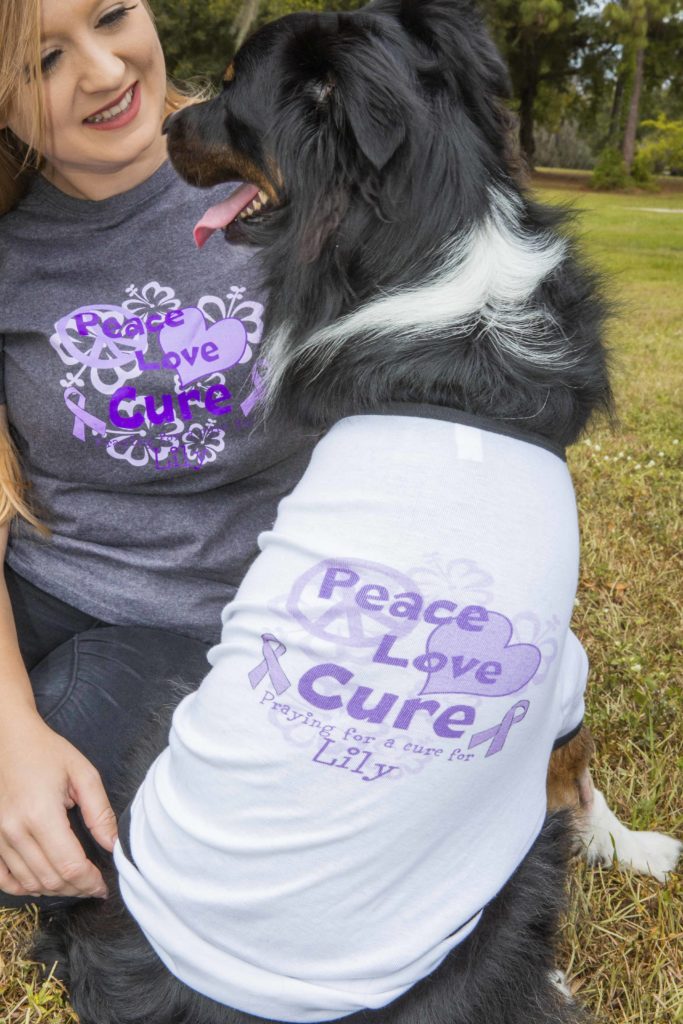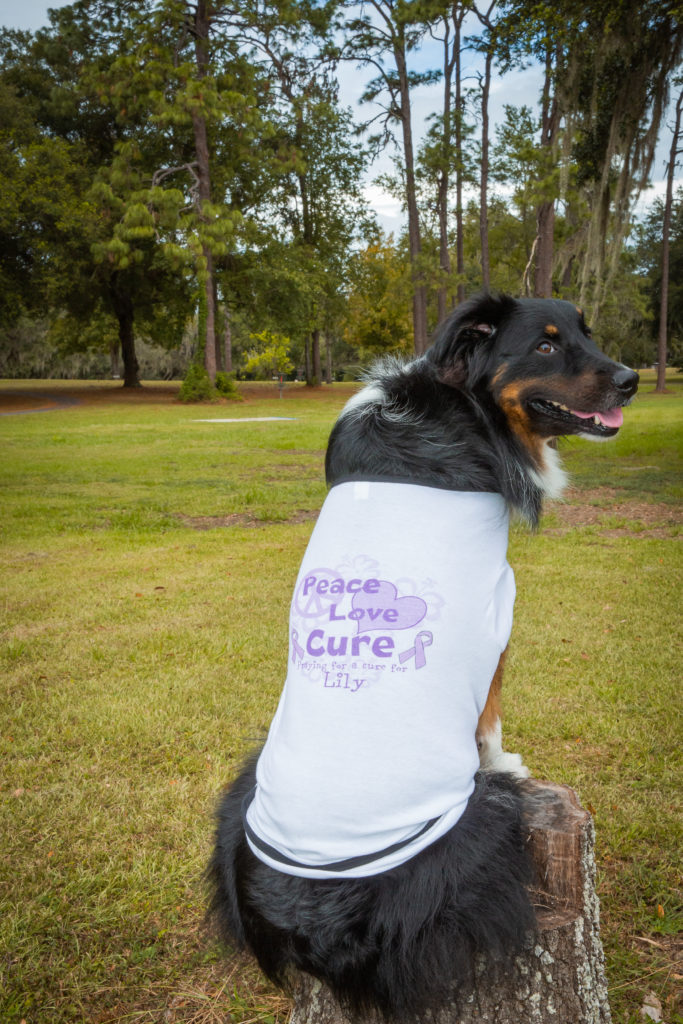November is National Pet Cancer Awareness Month
November 7, 2019

When I got the news that my dog Lily has cancer, I thought, not again! I had already lost my dog Slash to cancer 6 years prior. I wasn’t prepared. Personally, I don’t think you can ever be prepared. But, you can be knowledgeable and informed. Of course I had already done some research before, but unfortunately when I found out about Slash’s cancer it was too late to do anything to help him. In Lily’s case I was told she can go into remission with the help of chemotherapy treatments. So that is where we started. I am also following some holistic approaches as well. In the next few bloggo posts I will be sharing Lily’s chemo protocol and some of the holistic tips I’ve learned and which ones I’ve chosen to use so far.
There is no cure at the moment for dog lymphoma, which is what Lily has. There is however a high chance of remission. Remission can last for as little as a month or as long as years. There are some statistics for lymphoma remission including:
- 80%-90% attain remission
- 50% of dogs make it over a year
- somewhere between 20-30% of dogs make it past 2 years
- 7% make it past 5 years
- The average length of remission is 12-14 months
![]()

Now I know a lot more about dog lymphoma treatment than I do about any other cancers as I haven’t had to treat those on one of my pets. But here are some general things about pet cancer you should know below:
Pet Cancer Facts
- Pet cancer is the #1 disease related cause of death for dogs in the U.S.
- Cancer accounts for almost 50% of deaths in pets older than 10 years old
- 1 in 4 dogs & 1 in 5 cats will develop cancer in their lifetimes
Most Common Types of Cancer In Pets
- Lymphoma
- Splenic (Spleen) Cancer
- Bone or Joint Cancer
- Hepatic (Liver) Cancer
- Thoracic (Chest) Cancer
- Bladder Cancer
- Anal Sac Cancer
- Oral Cancer
- Brain or Spinal Cord Cancer
Tips for Identifying Cancer in Pets
- Difficulty chewing or swallowing
- Unwillingness to exercise
- Growing lumps or sores that fail to heal
- Drastic changes in appetite or weight
- Discharge or bleeding
Ways to Reduce the Risk of Pet Cancer
- Keep your pet at a healthy weight
- Spay or neuter your pet
- Visit your vet twice a year for checkups
- Limit exposure to carcinogens and other toxins
Petco Foundation has several links on their site for if you are struggling with the costs of cancer treatment for your animal. There are several places you can apply for help. There are different requirements for each and some limitations. You can check out the list here.
![]()
Remember for the month of November, in honor of Pet Cancer Awareness Month, for each session booked with Jessica Shaw Photography, We are donating 10% to pet cancer research.
We hope this has been informative and look forward to seeing you back next week!
Love,
Jess & Lily

[…] When the doctor called he told me that it was in fact intermediate to high grade mediastinal lymphoma. He then went over the statistics for remission and was very clear that lymphoma is treatable but not curable. (See my article about some of the statistics Here.) […]